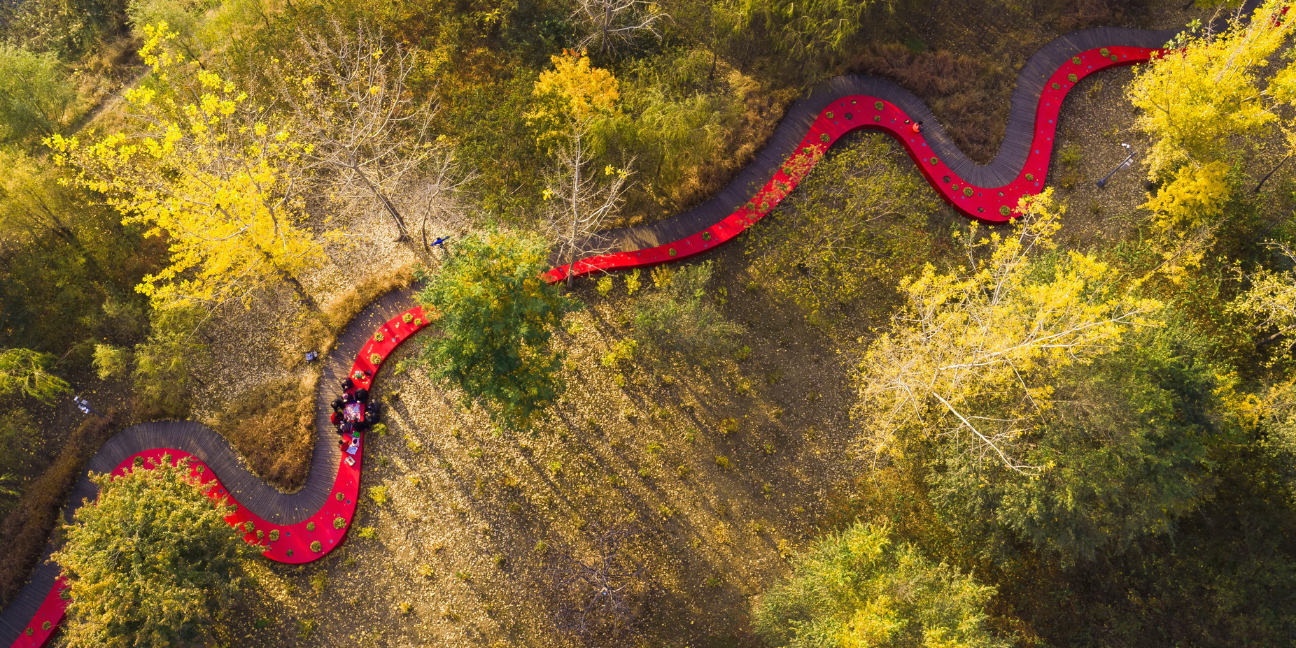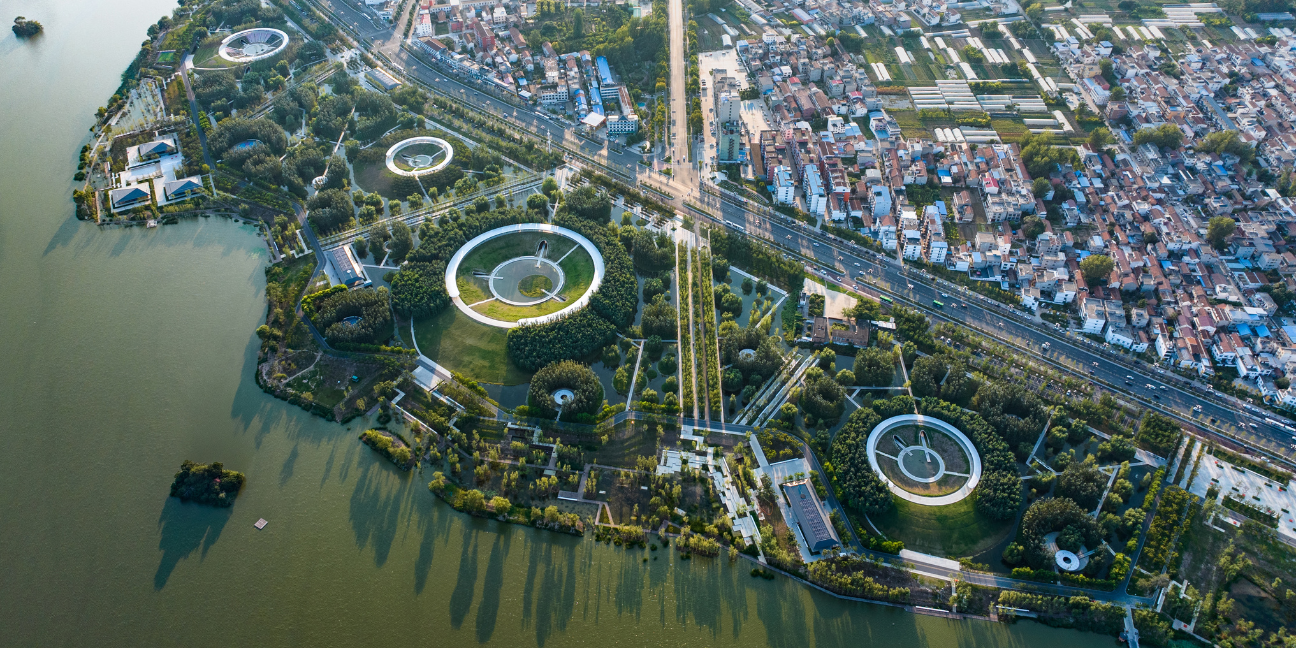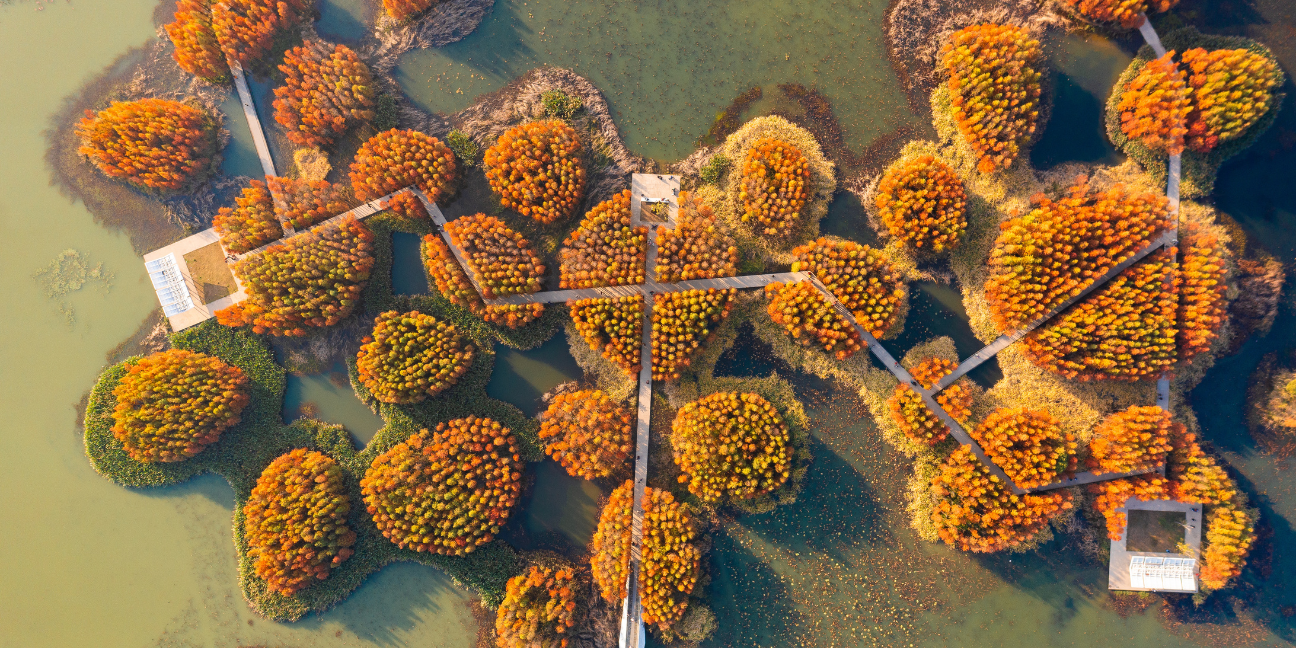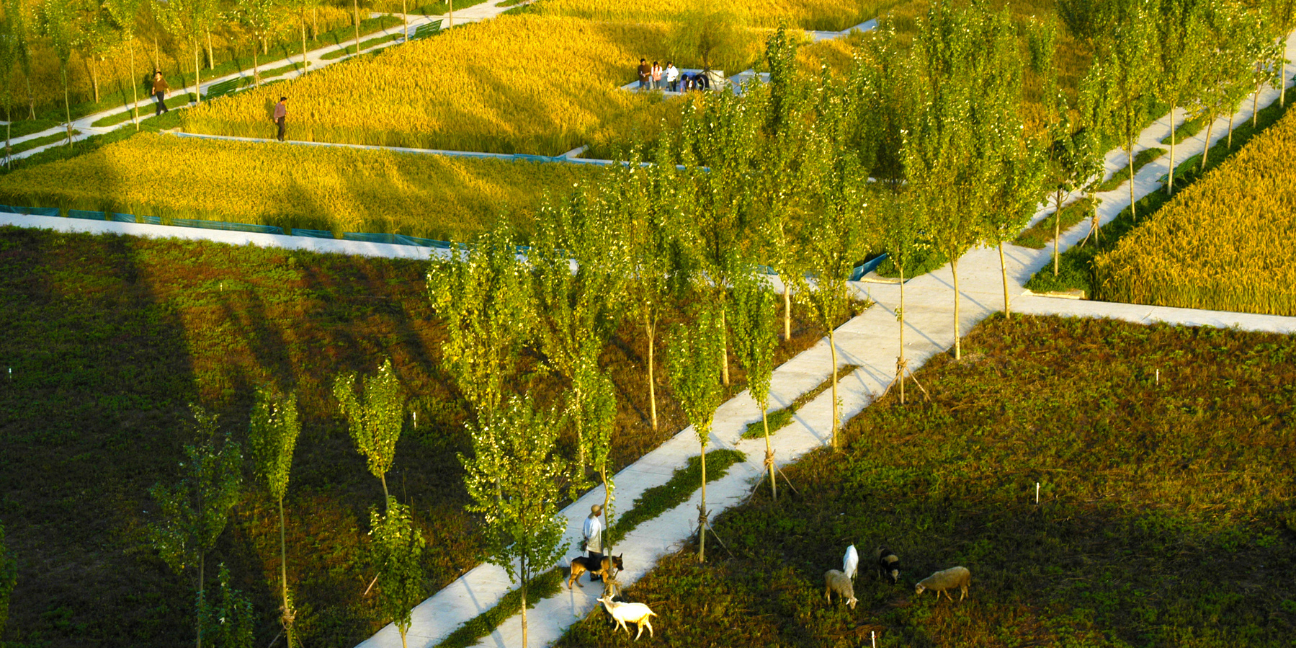2025 Childs Lecture: Charles Waldheim with Yufan Gao
Landscapes for Adaptation: The Work of Kongjian Yu
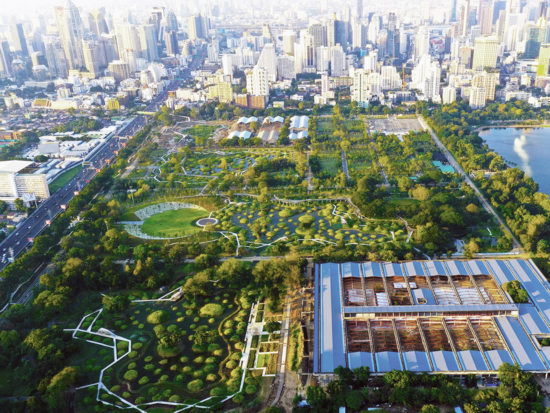
Date
October 20, 2025
Time
6:00 p.m.
Location
Cascieri Hall
For More Info
Cost
FREE
Categories
Events Lecture Childs Lecture
Join us in person at the BAC or virtually!
Meeting ID: 948 8105 6104
Passcode: FALL2025
Over the past thirty years, Kongjian Yu led a counter-current movement in landscape architecture, resisting the destructive forces of industrial urbanization by rooting design in traditional wisdom, ecological science, and nature’s resilience. He rejected the ornamental “Little Feet” aesthetics, and advocated for a “Big Feet Revolution” that redefined beauty through function, productivity, and authenticity in landscape and urban design. Through strategies like Landscape Security Patterns, Nature-Based Solutions, and Sponge Cities/Planet, Yu's work envisioned a future where cities are shaped as living systems that heal rather than harm our planet.
Kongjian Yu’s life was a testament to the power of design to heal, restore, and reimagine what is possible. His influence lives on—not only in the landscapes and cities he helped shape, but in the minds and hearts of students, educators, and practitioners around the world.
Join us Monday, October 20, 2025, at 6PM EST for the 2025 Childs Lecture featuring Charles Waldheim, North American architect and urbanist, presenting alongside the BAC’s Landscape Architecture faculty, Yufan Gao as they reflect on Professor Yu’s life, work, and legacy, in person at the BAC or virtually!

Kongjian Yu, a farmer’s son and Doctor of Design from Harvard, was the founding dean of the College of Architecture and Landscape at Peking University and a globally recognized leader in ecological urbanism. As the founder of Turenscape, he pioneered nature-based, water-driven solutions for climate resilience—most notably the Sponge City and Sponge Planet concepts—which significantly shaped China’s ecological strategies and gained international influence. His work spanned more than 1,000 projects across 250 cities at multiple scales.
Yu’s contributions earned him the highest honors in the field, including the Cornelia Hahn Oberlander Prize, the Sir Geoffrey Jellicoe Award, the Cooper Hewitt National Design Award, the RAIC International Prize, and over 100 other international design awards. He held honorary doctorates from Sapienza University of Rome and the Norwegian University of Life Sciences, and was an elected member of the American Academy of Arts and Sciences.

Charles Waldheim is a North American architect and urbanist based in New York and Cambridge, Massachusetts. He is John E. Irving Professor at the Harvard University Graduate School of Design where he directs the school’s Office for Urbanization. Waldheim’s research examines the relationships between landscape, ecology, and contemporary urbanism. Waldheim is author, editor, or co-editor of numerous publications on these topics, including Landscape as Urbanism: A General Theory, The Landscape Urbanism Reader, Technical Lands: A Critical Primer, Cartographic Grounds, Third Coast Atlas, Case: Lafayette Park Detroit, and Stalking Detroit. Waldheim is recipient of the Rome Prize Fellowship from the American Academy in Rome; the Visiting Scholar Research Fellowship at the Canadian Centre for Architecture; the Sanders Fellowship at the University of Michigan; and the Cullinan Chair at Rice University. He has been a visiting scholar at the Architectural Association School of Architecture in London and the Bauhaus in Dessau, Germany.

Yufan Gao, PLA, ASLA, is a full-time core faculty member in the School of Landscape Architecture at the BAC. She holds an MLA from the Harvard Graduate School of Design and a B.A. in Textiles from Hong Kong Polytechnic University and Cornell University. Yufan practiced at Michael Van Valkenburgh Associates and Mikyoung Kim Design before co-founding the independent practice, Studio Gao-Byun. Their studio explores the nuances in the relationships between nature and non-nature, landscape and architecture, with close attention to the trace of time that shapes a place. Her current teaching and research focus on the discourse surrounding landscape aesthetics and how we perceive, interpret, and conceptualize our natural and built environments.
Established in 2008, The Maurice F. Childs Memorial Lectureship Series honors the memory of Maurice F. Childs—a dedicated preservationist and celebrated architect who co-founded the Boston-based firm CBT Architects. The BAC and CBT have a long professional and personal history: CBT co-founders Maurice F. Childs, Richard Bertman, and Charles Tseckares taught at the BAC, along with other firm employees. CBT continues to employ and mentor many students and alumni. CBT principal, Kishore Varanasi AICP, serves on the BAC Board of Trustees.
Date
October 20, 2025
Time
6:00 p.m.
Location
Cascieri Hall
For More Info
Cost
FREE
Categories
Events Lecture Childs Lecture
Join us in person at the BAC or virtually!
Meeting ID: 948 8105 6104
Passcode: FALL2025

